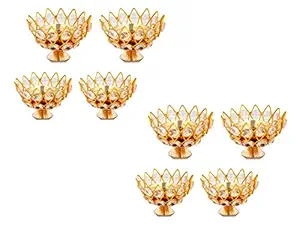महाभारत, सभी समय के महाकाव्यों में से एक, न केवल क्लासिक साहित्य को प्रभावित किया है, बल्कि आधुनिक साहित्य पर भी महत्वपूर्ण प्रभाव डाला है। दुनियाभर के लेखक, कवियों, और नाटककारों ने इसके शाश्वत विषयों, जटिल पात्रों, और गहरे दार्शनिक और नैतिक संघर्षों से प्रेरणा ली है। इस ब्लॉग में, हम आधुनिक साहित्य में महाभारत के प्रभाव और उसके दीर्घ परिप्रेक्ष्य में कुछ प्रमुख कामों की खोज करेंगे जो इसकी शाश्वत विरासत को प्रकट करते हैं।
1. "पैलेस ऑफ इल्लूजन्स" चित्रा बनर्जी दिवाकरुणी द्वारा: यह उपन्यास महाभारत को उसके केंद्रीय पात्र द्रौपदी के परिप्रेक्ष्य से दोबारा लिखता है। दिवाकरुणी महाभारत को नवाचारिक और नारीवादी दृष्टिकोण से प्रस्तुत करते हैं, जिसमें द्रौपदी की आंतरिक विचार और भावनाओं को समझाने का प्रयास किया गया है, जब वह राजनीति, शक्ति, और भाग्य के जटिल जाल में संचालन करती है।
2. "जय: महाभारत का चित्रित पुनर्कथन" देवदत्त पट्टनायक द्वारा: देवदत्त पट्टनायक, एक प्रसिद्ध पौराणिक, इस पुस्तक में महाभारत का एक विस्तृत पुनर्कथन प्रस्तुत करते हैं। इसे विशेष बनाने वाली बात लेखक की चित्रों का माहौल है और सादे कहानी से कथा को अधिक लोगों के लिए सुलभ बनाने का कौशल है, जिससे कि इस महाकाव्य को एक बड़े दर्शकों के लिए पहुंचाया जा सके।
3. "बिना अच्छे होने का कठिनाई" गुरचरण दास द्वारा: गुरचरण दास महाभारत के पात्रों के सामाजिक और नैतिक संघर्षों को और उनके समकक्ष समाज में उनके महत्व को जांचते हैं। इस पुस्तक में नैतिकता, धर्म, और सही और गलत के बीच की धुंधली रेखाओं का अध्ययन किया जाता है।
4. "कर्ण की पत्नी: विद्रोहियों की रानी" कविता काणे द्वारा: यह उपन्यास महाभारत के एक दुखी नायक कर्ण को उसकी पत्नी उरुवी के दृष्टिकोण से दोबारा सोचता है। इसमें कर्ण और उरुवी के भावनाओं और संघर्षों को छूने का प्रयास किया गया है, महाभारत के कम जाने वाले पहलुओं को प्रकट करते हुए।
5. "इनचांटमेंट्स की वन" चित्रा बनर्जी दिवाकरुणी द्वारा: चित्रा बनर्जी दिवाकरुणी का एक और काम, इस उपन्यास में भारतीय पौराणिक कथा रामायण की प्रमुख पात्रा सीता के जीवन पर केंद्रित है, और यह उनकी पैतृक आवश्यकताओं को समझाने के लिए कैसे काम में लेता है, जब वह पुरुष-मुखपूर्ष समाज में महिला के रूप में हैं। महाभारत के बारे में सीधे नहीं होते हुए, यह दिखाने का उदाहरण है कि कैसे महाकाव्य आधुनिक फिर से लिखने और पुनर्व्याख्यान करने का अभिप्रेरणा देता है और फिर से विचार करने की विशेषता है।
6. "रंदमूज़म" एम.टी. वासुदेवन नायर द्वारा: यह मलयालम उपन्यास, जिसे "द सेकंड टर्न" के रूप में अनुवादित किया गया है, महाभारत को उसके द्वितीय पांडव भीम के परिप्रेक्ष्य से फिर से कहानी करता है। इसमें भीम की भावनाओं, संघर्षों, और विचारों का अद्वितीय दृष्टिकोण प्रदान करता है, जिससे कि महाभारत को देखने के लिए एक विशेष लेंस मिल सकता है।
7. "युगांत" इरावती कर्वे द्वारा: यह एक काव्य नहीं है, लेकिन "युगांत" महाभारत के पात्रों की मानसिकता और मानव प्रकृति की छवि में छायाचित करती है। इसमें कथा के चरणों का विशेष जांच किया जाता है।
आधुनिक साहित्य महाभारत के आदिकालिक कथाओं और नैतिक संघर्षों से प्रेरित होता है। लेखक और पाठक दोनों ही इसके जटिल पात्रों और सार्वभौमिक विषयों से प्रेरित होते हैं, जिससे कि महाभारत का प्रभाव साहित्य की दुनिया में बरकरार रहता है।
Introduction to Mahabharata in Modern Literature
Significance of Modern Adaptations
Modern literature has embraced the Mahabharata, interpreting its themes, characters, and moral lessons for contemporary readers.
Why Study Modern Adaptations
Studying modern adaptations helps understand how timeless stories are reshaped to reflect present-day issues and culture.
Impact on Global Literature
Mahabharata has inspired international authors and works, showcasing its universal themes of morality, duty, and human struggle.
Bridging Past and Present
Modern literature connects ancient values with contemporary experiences, making the epic relevant to new generations.
Educational Value
Modern retellings of the Mahabharata are widely used in education to teach ethics, culture, and history.
Character-focused Adaptations
Focus on Draupadi
Draupadi is often highlighted for her resilience, courage, and influence, giving voice to women in contemporary storytelling.
Minor Characters in Focus
Modern writers explore lesser-known characters to uncover unique lessons and perspectives from the epic.
Exploring Pandavas
Modern works often focus on Pandavas’ struggles, virtues, and moral dilemmas, making their journey relatable to readers today.
Exploring Kauravas
Kauravas’ ambitions and flaws are examined in modern literature to discuss ego, greed, and ethical choices.
Portrayal of Krishna
Modern adaptations explore Krishna’s role as strategist, philosopher, and spiritual guide in innovative ways.
Themes in Modern Literature
Dharma and Ethics
Modern adaptations emphasize dharma and ethics, applying ancient lessons to moral dilemmas in present-day contexts.
Good vs Evil
Writers explore the conflict between good and evil in relatable modern settings while keeping the essence of the epic.
Human Emotions
Modern literature delves into emotions like jealousy, love, courage, and fear, portraying characters as psychologically complex.
Power and Politics
Adaptations often examine political struggles, leadership challenges, and the impact of power, reflecting contemporary society.
Spiritual Lessons
Spiritual teachings are integrated to offer guidance and reflection on life, devotion, and moral decision-making.
Forms of Modern Adaptations
Novels and Short Stories
Writers create novels and short stories inspired by Mahabharata, exploring character depth and ethical dilemmas creatively.
Poetry and Drama
Poetic adaptations and plays reinterpret Mahabharata themes, making them accessible and engaging for contemporary audiences.
Comics and Graphic Novels
Graphic novels and comics offer visually appealing retellings, attracting younger audiences to the epic.
Digital Media and Interactive Works
Digital adaptations, apps, and online interactive stories bring Mahabharata to life using modern technology.
Global Influence
Modern adaptations of Mahabharata have reached international readers, inspiring films, literature, and scholarly studies worldwide.
Impact and Legacy
Influence on Society
Modern literature helps readers understand ethical principles, human behavior, and social responsibilities through Mahabharata.
Inspiring Creativity
Authors and artists are inspired to reinterpret the epic, fostering creativity in literature, art, and media.
Education and Learning
Modern retellings are valuable educational tools, teaching history, ethics, and cultural heritage.
Promoting Values
Modern literature reinforces core values such as honesty, duty, courage, and compassion, making them relatable today.
Preserving Cultural Heritage
Through modern literature, Mahabharata continues to preserve cultural, historical, and spiritual heritage for future generations.
Modern literature has embraced the Mahabharata, interpreting its themes, characters, and moral lessons for contemporary readers.
Studying modern adaptations helps understand how timeless stories are reshaped to reflect present-day issues and culture.
Mahabharata has inspired international authors and works, showcasing its universal themes of morality, duty, and human struggle.
Modern literature connects ancient values with contemporary experiences, making the epic relevant to new generations.
Modern retellings of the Mahabharata are widely used in education to teach ethics, culture, and history.
Draupadi is often highlighted for her resilience, courage, and influence, giving voice to women in contemporary storytelling.
Modern writers explore lesser-known characters to uncover unique lessons and perspectives from the epic.
Modern works often focus on Pandavas’ struggles, virtues, and moral dilemmas, making their journey relatable to readers today.
Kauravas’ ambitions and flaws are examined in modern literature to discuss ego, greed, and ethical choices.
Modern adaptations explore Krishna’s role as strategist, philosopher, and spiritual guide in innovative ways.
Modern adaptations emphasize dharma and ethics, applying ancient lessons to moral dilemmas in present-day contexts.
Writers explore the conflict between good and evil in relatable modern settings while keeping the essence of the epic.
Modern literature delves into emotions like jealousy, love, courage, and fear, portraying characters as psychologically complex.
Adaptations often examine political struggles, leadership challenges, and the impact of power, reflecting contemporary society.
Spiritual teachings are integrated to offer guidance and reflection on life, devotion, and moral decision-making.
Writers create novels and short stories inspired by Mahabharata, exploring character depth and ethical dilemmas creatively.
Poetic adaptations and plays reinterpret Mahabharata themes, making them accessible and engaging for contemporary audiences.
Graphic novels and comics offer visually appealing retellings, attracting younger audiences to the epic.
Digital adaptations, apps, and online interactive stories bring Mahabharata to life using modern technology.
Modern adaptations of Mahabharata have reached international readers, inspiring films, literature, and scholarly studies worldwide.
Modern literature helps readers understand ethical principles, human behavior, and social responsibilities through Mahabharata.
Authors and artists are inspired to reinterpret the epic, fostering creativity in literature, art, and media.
Modern retellings are valuable educational tools, teaching history, ethics, and cultural heritage.
Modern literature reinforces core values such as honesty, duty, courage, and compassion, making them relatable today.
Through modern literature, Mahabharata continues to preserve cultural, historical, and spiritual heritage for future generations.


